end users
- need platforms and constellations that
- rules out even the possibikity of
- disgusing people as data
- not treating them as users loosers
- but in Autonomous Actors in their own(ed) networks
- and interactions with existing systems
- POSE
end users
reimagining the First Amendment
: essay - series - reimagining = the First Amendment - in the digital age
Protocols, Not Platforms: A Technological Approach to Free SpeechAltering the internet's economic and digital infrastructure to promote free speech
slogan = Protocols, not Platforms
stigmergic cognition
tools
Stigmergic epistemology
=
communities of knowers
= social epistemology = communities of knowers
If social epistemology - has the - formation, - acquisition, - mediation, - transmission & - dissemination of knowledge
in complex = communities of knowers - as its subject matter,
then its third party character - is essentially = stigmergic.
ocated agent
comment : - the use of the term agent is pervasive - prefer the use of the term actor a human - as opposed to a machine agent
accommodate the dynamic tacit dimensionto the acquisition and perpetuation of social knowledge
accommodate - dynamic = tacit dimentions
Knowledge GardenA collection of others' work that has inspired ours
= Stigmergiv Epistemology, Stigmergic Cognition
It’s time to stop behaving like“users.” Instead, let’s become“makers”
= "makers" - not = "users" - take on responsibility
communities of knowers
= communities of knowers
Stigmergic epistemology, stigmergic cognition
= Stigmergic - epistemology - cognition
Accepting our responsibility for how we shape our tools
accepting responsibility - for : how we shape tools
resonate with : - https://hyp.is/7kr0InCCEe2iRx8JRzYefw/bafybeif4oorhvnpwsnjuwoggprdeqcoi4xcbsiptpr75h5b4akzqsri7je.ipfs.w3s.link/Common%20Sense[makers].pdf
Welcome to the Omni Win Project Podcast

provides secure validation while still offering near real-time coordination capabilities at large scales.
= Holochain - provides :
= IndyWeb - contrasted with = HoloChain - operates at ***human scales - high dunbar numb participants - within designated time periods: week, months, years - limiting number of concurrent channels to 42! - keep within limits of individual human attention
As such, it provides exactly the solutions needed today: t
= Holochain - provides : solutions needed today - data integrity - performance - required to support Web3's goal to - leave centralized corporate servers behind
= IndyWeb - contrasted - instead of - leaving centralized corporate servers behind - integrate with, interoperate with, migration path to - limit the scope of harm/exploitation - stop disguising people as data - people own control their own - share in their own terms - interoperate with centralized apps - for the benefit of the participants
It does not suffer from the scalability constraints of blockchain and global consensus
= Holochain - not - suffer : - scalability constraints of blockchain - and global consensus
Holochain is a scalable peer-to-peer application framework
= Holochain - is : - scalable - peer-to-peer - application framework
critical feedback which has helped us address feature requirements, reliability challenges, and usability hurdles such that we are assured Holochain now has all the vital elements for building real Web3 apps.
= provided : critical feedback - requirements - reliability challenges - usability hurdles
= HoloChain - has : all vital elements build real Web3 apps
= alternative vision for= Web3 Apps - in = IndyWeb - Web intent addressable capabilities - that come to people - to work on their own(ed) data - see = Pergoss App Model
the same firm that audited Ethereum, Ethereum 2.0, Filecoin and many other projects with sophisticated decentralized architectures.
= Least Authority - audited - Etherium, 2.0 - filecoin
Holochain has been undergoing a security audit of its cryptography, codebase, and integrity model. We've engaged Least Authority,
= security audit - by : https://leastauthority.com/
occasionally gone back to the drawing board
gone back to the drawing board
five years of development
5
Holochain Reaches Major Maturity Threshold

-- subtitle : - George Gilder sees bitcoin as the next step in currency - comment - until he sat down and had a long conversation with Craig, then it dawned on him that it's not that good

I like triple entry stuff I'd Charles 00:05:33 purses thesis that all information is triadic symbols have to be linked to objects through interpret and human 00:05:46 interpret us others and the reason a I can do games so fantastically is this in game symbols and objects are the same so 00:05:59 the computer speeds can necessarily shuffle the symbols and the outcomes or the game but life isn't a game the map is not the territory and and the human 00:06:14 mind is central to the all creativity in the image of your Creator
I like triple entry stuff
tryadic symbols objects interpreted by human
machines can do games
because game symbols and objects are the same
dr. Wright said earlier that he hopes to see a US dollar or British Pound on the 00:41:00 Bitcoin blockchain what's the likelihood you think that's gonna happen on bsv and I think you want to know what it's going to take to get there generally well I don't really see any other options 00:41:12 there's no other system that does it I mean and nasty and I'm patented all the solutions I mean yes the the Fed could actually still pay me for licensing the patents but in a way 00:41:26 that's actually still a good thing because that brings a whole lot of money into bsv and the American dollar still subsidizes Bitcoin so I mean you've got an option of them using Bitcoin and 00:41:38 scaling and doing fed coin or they can use my technology and then they can subsidize Bitcoin I don't mind either way
oops fedcoin
I'm still I'm still a little confused because of the know the whole if you create money as a 00:33:52 commodity that people can prosper by holding you nullify it as money it can't function as money that's right money is 00:34:05 as measured by its utility not by its market cap always coin market cap stuff is is really a delusion and in it and it 00:34:22 confuses people I think that it's good that Satoshi version doesn't have the market cap of coin market cap of BTC or 00:34:34 whatever it's that's a good sign you want you don't want money to be a commodity or an asset a speculative asset you want it to be a measuring 00:34:48 stick and that's I just hope that this industry understands this fundamental principle because if you create money that people want a hole you just 00:35:04 contradict the whole purpose of the endeavor you nullify your currency as money
money as a commodity
nullifies it's utility
delusion
want money as a measuring stick
I don't agree with some of your bits on 00:31:21 III Ahmet cetera I think it mirrors an article that everyone knows the term but miss applies it from 1996 which was the wild wild web they were talking about 00:31:35 Usenet and other like basically a Redux of the penny share scams and the postal stamp scams of earlier eras and what 00:31:48 we're seeing in a lot of ico is the same thing this whole idea we don't need any regulation well you can create a regulated ico you can create something that actually works in all of this the 00:32:02 problem I see with icos is they're analogous to a web I pee oh and we're by POS were a big thing in the early internet days where people would basically create distributed web 00:32:17 companies which were partnerships and give out shares to everyone and all this stuff and there were tokens just you called them different things and there was even a Simpsons episode where Bart 00:32:30 was running his own internet company in IP owing and they had a toilet paper roll and like the guy was pulling out shares out of the toilet paper roll and Bart said I 00:32:44 need to go and he just pulls out their shares and goes off to the toilet giving an idea of what people thought about all of this before the dot-com crash because the value of a company is not whether 00:32:56 you have an idea it's how you execute it it's how you deliver it's how you actually build something of value to people so going up there and going I've got an idea I can have this rideshare taxi company that allows people to 00:33:10 basically have no controls or responsibility so that occasionally women can get raped in the back of cars and I can go not my fault you can say that's a great idea and that's probably 00:33:23 why they lost they're about to lose their license and whatever else here in London
Usenet
rideshare Simpson episode toilet paper roll
unregulated
we could have had eventually US dollar on top of Bitcoin and I hope to see that and 00:30:45 everyone goes oh no us all well I actually think that'd be a good thing imagine US dollar and pound on top of Bitcoin with an immutable stable ledger of how much value they have compared to 00:30:57 bit join over time we'll see how that actually applies
Human knowledge provides a formal understand-ing of the world.
Human Knowledge provides a formal understanding = of the world =
Relation Path Reasoning:
=
For knowledge acquisition, KGCis reviewed under embedding-based ranking, relationalpath reasoning, logical rule reasoning, and meta relationallearning;
= knowledge acquisition - embedding-based ranking, - relational path reasoning, - logical rule reasoning, and - meta relational learning
path inference
= path inference
A Survey on Knowledge Graphs:Representation, Acquisition and Applications
Teodora Petkova@TheodoraPetkovaA brief history of knowledge bases. In: A survey on knowledge graphs: Representation, acquisition, and applications” Dive in :) https://arxiv.org/pdf/2002.00388.pdf
A Tools for Thought Ecosystem
A Tools for Thought Ecosystem — Open Thoughts
Tool for Thought Ecosystem

= noosphere
= researching = Indy Wiki Threads - indy annotation - permanent : https://bafybeiecy42cfpv464sup5d3eelhvav32y26cp7jgefalmlzc7hfh2nfd4.ipfs.w3s.link/This%20is%20a%20Wiki%20_%20MacRumors%20Forums.pdf
WikiPost History
= WikiPost History

.png)
Testing attachments

Excellent idea! Finally no more hideously long threads from which you have to weed out the details on (I'm looking at you All The Little Things)!
The first post of this thread is a WikiPost and can be edited by anyone with the appropiate permissions. Your edits will be public.
= wiki threads
= WikiPost + associated Thread
A wiki thread is a normal discussion thread where the 1st post is an editable wiki. That means other users can edit the contents of the post. The purpose is to help the management of long running guides or collections of knowledge.
= wiki threads - is a normal discussion thread - where the first post is an editable wiki - other users can edit the contents of the post - purpose : help management of - long running guides - management of knowledge
New Feature: Wiki Threads
Wiki Threads
= Wiki Threads
Wiki Threads - Linking Within A Single Post - Discourse Metahttps://meta.discourse.org › wiki-threads-linking-within...https://meta.discourse.org › wiki-threads-linking-within...Wiki Threads - Linking Within A Single Post · support · Mulsiphix October 1, 2019, 10:05am #1. I have some very long posts that are in Wiki format.1 answer · Top answer: Yup: [image] Deep Linking to Headings (Anchors) faq (as of 29 May 20
= Wiki Threads
Wiki Threads - Linking Within A Single Post
= Wiki Threads
- linking within a single post
- why not everywhere
= Indy Wiki Threads
(as of 29 May 2020) Unfortunately there is currently no standard markdown way of creating a heading with an anchor, so if you wish to link directly to an anchor in a post, you have to use regular HTML. Simply create a heading with an id that begins with heading-- like so: <h3 id='heading--link-to-me'>Link to me</h3> And then any time you link to the post, you can add #heading--link-to-me in the URL and it’ll jump directly to that spot once it loads. (To prevent abuse of styling on the site, y…
= Wiki threads - documented example of a need - kludgy solution - for the lack of standard markdown way of creating a heading with an anchor
also add that you're making a wiki so you have to make the threads to then put them on the wiki
![]()
There are three main objects in LiquidThreads. They are, in descending order of size, Channels, Topics and Posts

Standard "talk" pages are an extremely high barrier-to-entry for new users
talk pages high barrier of entry
LiquidThreads is a threaded-model discussion system intended as an alternative to standard MediaWiki talk pages. LiquidThreads is designed to be familiar and easy to use to most internet users and to provide a smooth on-ramp for participation and collaboration.

= WikiThreads, Wiki Threads

Monero Means Money Private, decentralized cryptocurrency that keeps your finances confidential and secure.

Wiki Threads@wikipediathreadWhat if Wikipedia summarized their wikis in twitter threads?EducationJoined June 202235 Following1 Follower

Social network aggregation is the process of collecting content from multiple social network services into one unified presentation. The task is often performed by a social network aggregator, such as Hootsuite or FriendFeed, which pulls together information into a single location,[1] or helps a user consolidate multiple social networking profiles into a single profile.[2]
= social network aggregation - collecting content from multiple social network services - into one unified presentation - pull together information into a single location - consolidate multiple social networking profiles into a single ome
The Bigger Picture Making sense of culture, philosophy, psychology, spirituality & psychedelics
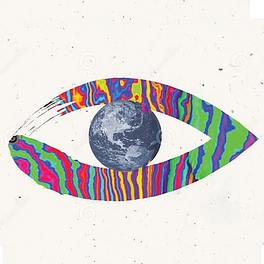
Setting up a Mastodon-Twitter crossposter

“Scholarship is the process by which butterflies aretransmuted into caterpillars ”Jerry Fodor
= scholarship transmuted butterfly

Crypto wasn’t CRYPTOcurrency it was CRYPTOgraphy.Instead of sending money they were sending messages, privately...most of the time. You see, the math that once hid the most securemessaging between command/control and maritime vessels, nowsecures the funny little anime creatures on your phone.
= cryptocosm
ZANO - The Next Step InAnonymous Blockchain?
Least Authority@LeastAuthorityWe're committed to building & supporting the development of technology solutions that advance digital security and preserve privacy as a human right.Earthleastauthority.comJoined November 2011233 Following8,757 FollowersFollowed by PrivateStorage, StarkNet Maestro (zk, stark), and 7 others you follow

Holochain@holochainAn end-to-end, open source, P2P app framework. Creating an ecosystem of decentralized apps with distributed, user-controlled storage.Globally Distributedholochain.orgJoined December 20162,512 Following136.2K FollowersFollowed by IOEN Tech, Myco, and 68 others you follow
= following - twitter : @holochain - end-to-end - open source - p2p - app framerwork
= creating = an ecosystem of apps - that are - decentralized - with - distributed - user-controlled-storage

= constrast - with = IndyWeb - open - commons based - peer Co-created - emergent - networked - ambient - ubiquitous - born interoperable - inter(personal|communities) - build from trust for trust, but verify - Intentional Constellations - of - multi-player - evergreen - local first - off-line first - end-end-encrypted conversational - eco system of apps - player controlled owned - permanent - private - universal storage - networked capabilitiies
hyle-team / zano
= zanoi
Hidden wallet balance The confidentiality of all Zano transactions is hard-coded into the core. By concealing all sending and receiving addresses as we have maximized the level of privacy for every Zano user.
= hidden wallet balance
Untraceable Transactions The transactions between Zano network members are made untraceable with ring signatures and stealth addresses. Also, the way transaction data is stored on the blockchain allows access by authorized parties only, and none of the private data is ever publicly published.
= untraceable transactions
code design features like forward and backward compatibility, component-based modular structure, and asynchronous core architecture.
= perfect design - forward and backward compatibility - component-based modular structure - and event driven - asynchronous core architecture
= comment = just like the IndyNet/Web/Lab
= for = IndyNet Design
Secure.Scalable.Easy to UseZANO Zano is the development of a scalable and secure coin, with confidential assets support. The technology behind our blockchain provides reliability, security, and flexibility—a perfect option for p2p transactions.
= perfect option for p2p transactions
Escrow is a legal concept describing a financial agreement whereby an asset or money is held by a third party on behalf of two other parties that are in the process of completing a transaction. Escrow accounts are managed by the escrow agent.

Crypto wasn’t CRYPTOcurrency it was CRYPTOgraphy. Instead of sending money they were sending messages, privately…most of the time. You see, the math that once hid the most secure messaging between command/control and maritime vessels, now secures the funny little anime creatures on your phone. For someone to truly understand the significance of ZANO I need to lay out the timeline of privacy blockchain technology and the reasoning behind blockchain project fruition.
crypto
Crypto wasn’t CRYPTOcurrency it was CRYPTOgraphy. Instead of sending money they were sending messages, privately…most of the time
Crypto is not for currency it is cryptography
ZANO - The Next Step In Anonymous Blockchain?
Zooko Wilcox-O'Hearn 3rd degree connection 3rd Founder, CEO at Least Authority Enterprises Least Authority Enterprises Boulder, Colorado, United States
Founder
Our History In 2013 Least Authority’s founder Zooko Wilcox announced the launch of S4 in response to the Snowden leaks about the PRISM program. Several iterations and a partnership with Private Internet Access later, S4 evolved into PrivateStorage, which now is owned 100% by Least Authority.

Storage-Time
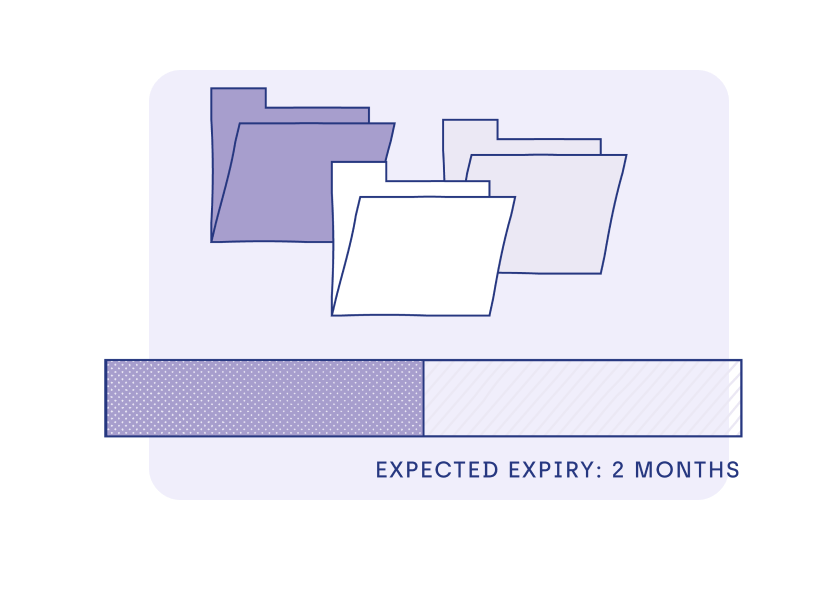
Accountless Authorization
= accountless authorization
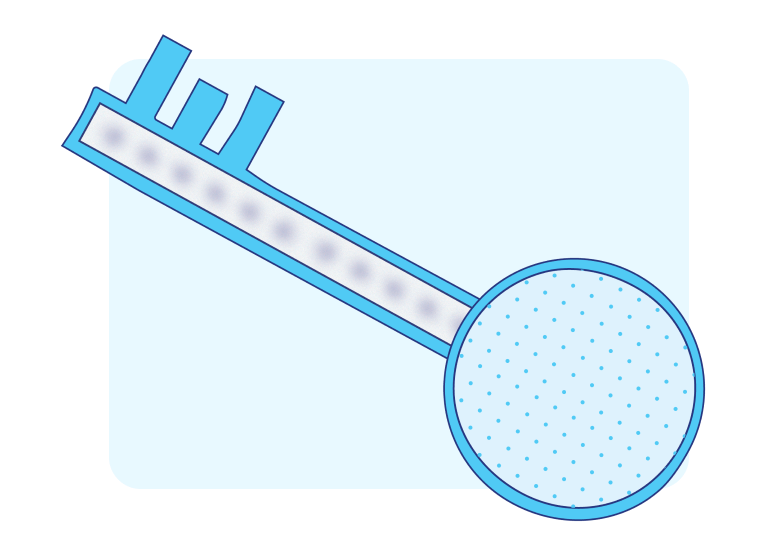
PrivateStorage implements privacy and security by design, not by policy. We cannot see your data when it is stored by us.
= Privacy and security by design

A free and open, secure, decentralized, fault-tolerant, distributed data store and distributed file system. It can be used as an online backup system, or to serve as a file or Web host similar to Freenet, depending on the front-end used to insert and access files in the Tahoe system.
= data store & distributed file system
Tahoe-LAFS
=
Free and Open Decentralized Data Store

Magic Wormhole
Get things from one computer to another, safely.
Get things from one computer to another, safely
=
Magic-Wormhole: Get Things From One Computer To Another, Safely
Winden is identity-free, meaning that senders and receivers don’t need to know each other’s identity to use it, or to reveal their identity to us.
= identity-free - senders and receivers don't need to know - each other's identity - or reveal their identity to us
Winden is a free web application for secure, fast, and easy file transfers between devices in real-time.
= file transfer between devices - real time
Winden - Magic Wormhole web application
Individuals trapped in a liminal state cannot operate in a rational way.
liminal state individual rational
Bardo, in the In- Between State

Related: The Solace Of Surrender
= solace of surrender
six perfections (paramitas) that benefit both oneself and others: benevolent generosity, ethical discipline, forbearing patience, enthusiastic perseverance, concentrative meditation, and discerning wisdom.
six perfection paramitas
This special awakening is what the bodhisattva strives to attain, deliberately choosing through his great compassion to remain in samsara and to renounce gaining salvation for himself alone. In other words, an aspiring bodhisattva wishes for awakening only as a means to bring about the positive welfare of other beings. Because of his love and compassion for all beings, the bodhisattva is never deterred by the suffering of samsara or any hardship that his altruistic efforts may entail. Fearless courage, therefore, particularly distinguishes a bodhisattva and is implicit in bodhicitta.
fearless courage
The Solace of Surrender

how self and others are equal;
self and others
Bodhi what? Bodhicitta? Bodhisattva? What’s the difference?

“Thinking through the ecosystem of touch points is simply more complicated than in the past.”

In a Different Voice: Psychological Theory and Women's Development

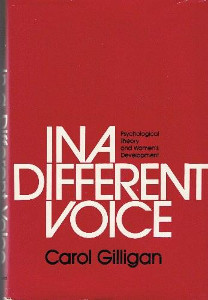
= experimenting - with = Annotating IndyLab archived pages
- Archive Web Pages with IndyLab
- ensure that hypothesis annotation is enabled
- Use conversations on the margins of web pages
- as portal to deeper collaboration
- on associative complexes (aplexes for short) in an interpersonal
- inter personal/community nexus
Complexity Weekend
missing background image while experimenting
auto loading hypothesis annotation tool for archived web pages
Complexity Weekend

This opens a new window with that URL, it set the focus to that windows, and as soon as the 'load' event is triggered, it executes the code in the function. It only works with a page in the same domain.
load url and run script
window.hypothesisConfig = function () { return { "openSidebar": true }; };
= configure = hypothesis = client - using = JavaScript - embed.js - embded
<script type="application/json" class="js-hypothesis-config"> { "openSidebar": true } </script>
= enable = Hypothesis Annotation - open = sidebar
With just plain javascript
notes
Enabling annotation of iframed content
= enable = hypothesis = annotation - in = iframed conteng
enable
How to Add Hypothesis to Your Website
= add = Hypothesis Annotation - to your = Website - embed.js
MarginNote 3 17+ E-reader Redefine your Study Sun Min

However, itcannot be over-emphasized that our need for understanding is best served atthe higher level of abstraction; the advantage of a high-level language isnotational rather than computational. That is, it allows us to think andrepresent our algorithms in mathematical terms rather than in terms of themachine. It is after a clear understanding of the problem is attained that weshould begin thinking about representation.
= need for understanding - best served at the = higher level of abstraction
= after a = clear understanding of the problem is attained = begin - thinking about = representation

the power of high level languages isprimarily notational rather than computational.
= advantage of high level language is notational - rather than computational

éist is simply a notational abbreviation for nested applications ofcons.
= list is a notional abbreviation - for nested application of cons
emptiness

The notion ofdirectness is also related to abstraction, in that if something is not done directly one should be able to abstract itto become direct. IP’s ―intentions‖ are such universal abstractions
!- gloss : intentions - universal abstraction - express a specific implementation into its computational intent - achieve direct expression by abstracting it to become direct
!- alt - gloss : coherent elaboration of the intentional structure intent vectors in Digital Spaces of the intented behaviour of the systenm we are building such that it introduces in a coherent complete forms all the effective concepts, computational and othere processes needed to exhibit behaviour of the system and or provide the desired results an, affordances for human experience
= beyond = programming languages - is = Effective Articulation of Intent - get your conceptualization of intentions right through mutual learning and conversation - then Software and the processes they enable will take care of themselves - as a Conversations about intents, purposes, processes, - through a process mutual learning and articulation
Computer as Universal Modeling Machine
= universal modeling machine & stygmergy
use the computer for what it is, a “universal modelling machine
= universal modelling machine
= engine of co-creative symmathesy

'cause interpretation is everything
attention and CARE
not the other way round
Stories of Learning Journeys
= learning journeys
= fedwiki
lightweight property graph as javascript module
lightwight property graph
Property Graphs as Javascript Module
= graph language = fedwiki
About Graphviz Plugin
= graph language = fedwiki
I became convinced that this experience was relative to one’s location.
experience - is - situated
Reality Begins With Consciousness:A paradigm shift that works
the mutually arising of novel View Points from study of reality
Philosophy: world forming Paradigm shifting conceptualizations, regulative ideas
in-forming co-evolution of discoveries opening new (ways/fields) of study
"In-formed evolution"

https://hyp.is/8C2vRESNEe2U7zvfUyaLIQ/en.wikipedia.org/wiki/Conceptual_framework
László motivates conscious life-forms and informed evolution solvingseveral problems that emerge from quantum physics, especially non-locality and quantumentanglement. In TDVP there is the initial tethering of C-substrate with S-substrates and T-substrates. Laszlo’s concept of the preconditions has some similarity, but without the tetheringof all reality
= conscious life-forms = informed evolution =
https://twitter.com/TrailMarks/status/1594983639523418113

Tech book
Read the Docs
Exploding IPFS data — enabling single use links, expiring links and more through a simple link shortening service.

Free Link Shortening Service for IPFS Files

And human cultural evolution indubitably has an intentional component."
cultural evolution intentional component
= informed evolution

Ageless Software evolves, to meet new requirements, without reducing its efficiency or understandability. Here we introduce a methodology called Informed Evolution for supporting the construction and evolution of ageless software.
= informed evolution - software
Here is a compilation of some of the talks and presentations from the Club of Budapest.

Prof Dr Ervin LaszloThe Founder & President of the Club

Simply Genius!: And Other Tales from My Lifeszerző: Ervin Laszlo, Ph.D.
promotes a linking of non-government organizations promoting sustainable development, using the Internet.
= for = IndyWeb
why evolution is an informed, not random
evolution is informed
centre attention on the evolution of human values and consciousness as the crucial factors in changing course — from a race towards degradation, polarization and disaster to a rethinking of values and priorities so as to navigate today's transformation in the direction of humanism, ethics and global sustainability".
Club of Budapest
Ervin László ([ˈɛrvin ˈlaːsloː]; born 12 June 1932) is a Hungarian philosopher of science, systems theorist, integral theorist, originally a classical pianist. He is an advocate of the theory of quantum consciousness.

Ayn Rand

acquired Twitter is is because it's important to the future of civilization so it's very important Civilization
civilization
now i need to clean it how much time do you invest in cleaning 00:06:03 it roughly the same amount of time it took you to write
how long does it take to cleaning your code
as long as long it took u to write it
once the code works that's when you have to clean it
once it works have to clean it
the fact that you got it working is only half the job 00:05:23 once the code works that's when you have to clean it no one writes clean code first nobody does because it's just too hard to get code to work so once the code works it will 00:05:37 be a mess human beings do not think in nice straight lines they don't think in if statements and while loops they cannot foresee the entire algorithm so we piece the thing together we cobble it together 00:05:50 with wire and scotch tape and then it suddenly works and we're not quite sure why and that's the moment when you say all right now i need to clean it how much time do you invest in cleaning 00:06:03 it roughly the same amount of time it took you to write it and that's the problem nobody wants to put that effort in because they think they're done when it works 00:06:13 you're not done when it works
You are not done when it works!

Complexity Weekend Community

Possiplex: Ted Nelson ’59 and the Literary Machine
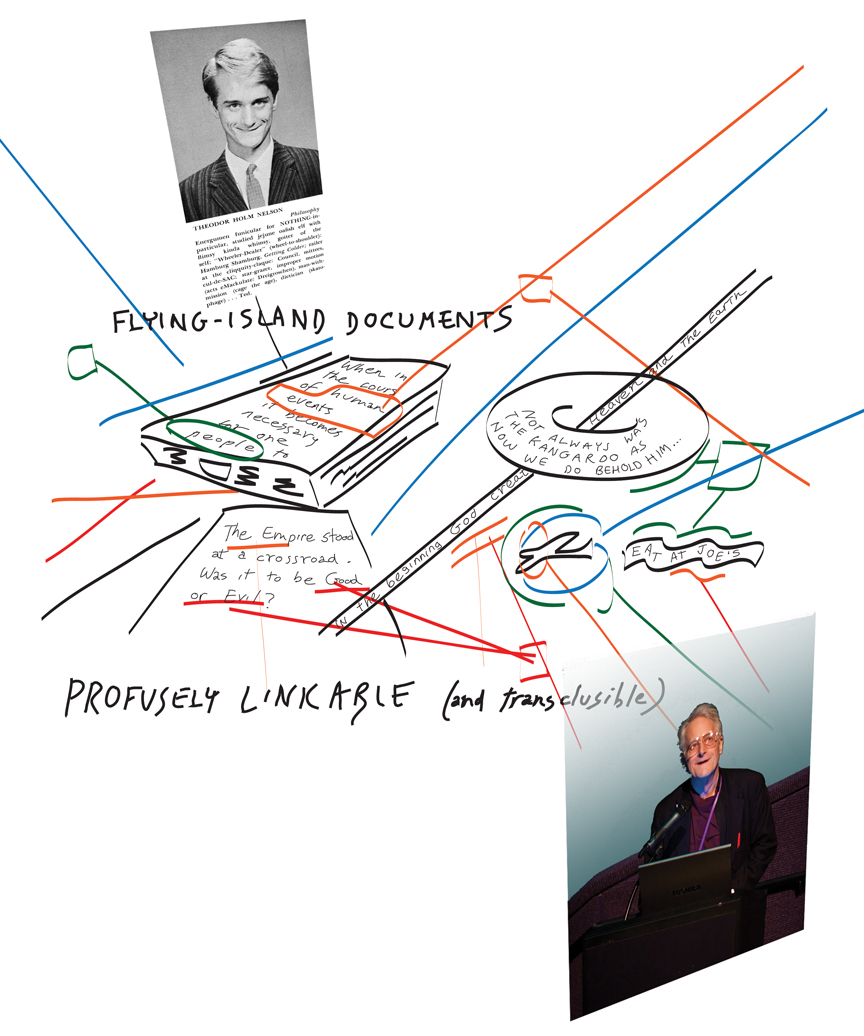
The communications device must be as available (in every way) as a slide rule. The service must not be esoteric to use. (It must be learnable in private.) The transactions must inspire confidence. (Kindness should be an integral part.)
= communication device - must be available
= service - must not be esoteric - learnable in private
= transactions - inspire confidence - kindness integral part
= comment - = transaction/interactions - must - delight
meta-system to he created in which the specialist himself may describe the symbol system necessary to his work
= meta system
look at a computing engine not as a device to solve differential equations, nor to process data in any given way, but rather as an abstraction of a well-defined universe which may resemble other well-known universes to any necessary degree
= computational universes - resemble other well-known universes
Not being able to solve any one scientist's problems, they nevertheless feel that they can provide tools in which the thinker can describe his own solutions and that these tools need not treat specifically any given area of discourse
= universal nature of information processing - requires universal solutions - where 'universal' ion the sense of a "universal machine" or 'universal function' as exemplified with LISP eval/apply mutual recursion
integrate the notion of locality of interest in content resolution.
= comment - locality of interest is baked into MindPlex
IPFS and NDN share the same vision, that of content-addressable networks, but approach it from vastly different perspectives. NDN is a native network-layer approach, while IPFS is an application-layer approach.
= share - vision = content-addressable networks - perpecives - network-layer - for = NDN - application-layer - for - IPFS
NDN Seminar: a high-level overview of the InterPlanetary File System
IPFS Is On A Mission To Improve The Internet Through NDN
= explore : NDN & IPFS
total value locked (TVL)
= gloss = TVL - total value locked
I analyzed 200 DeFi Projects. Here Is What I Found Out.
The Bardo Thodol (Tibetan: བར་དོ་ཐོས་གྲོལ, Wylie: bar do thos grol, "Liberation Through Hearing During the Intermediate State"), commonly known in the West as The Tibetan Book of the Dead
= Bardo Thodol - translated as = Liberation Through Hearing During the Intermediate State - commonly know - in the west - as the : Tibetian Book of the Dead

Russian Nationalism DOI link for Russian NationalismRussian Nationalism bookImaginaries, Doctrines, and Political BattlefieldsByMarlene Laruelle

No, Elon and Jack are not “competitors.” They’re collaborating.
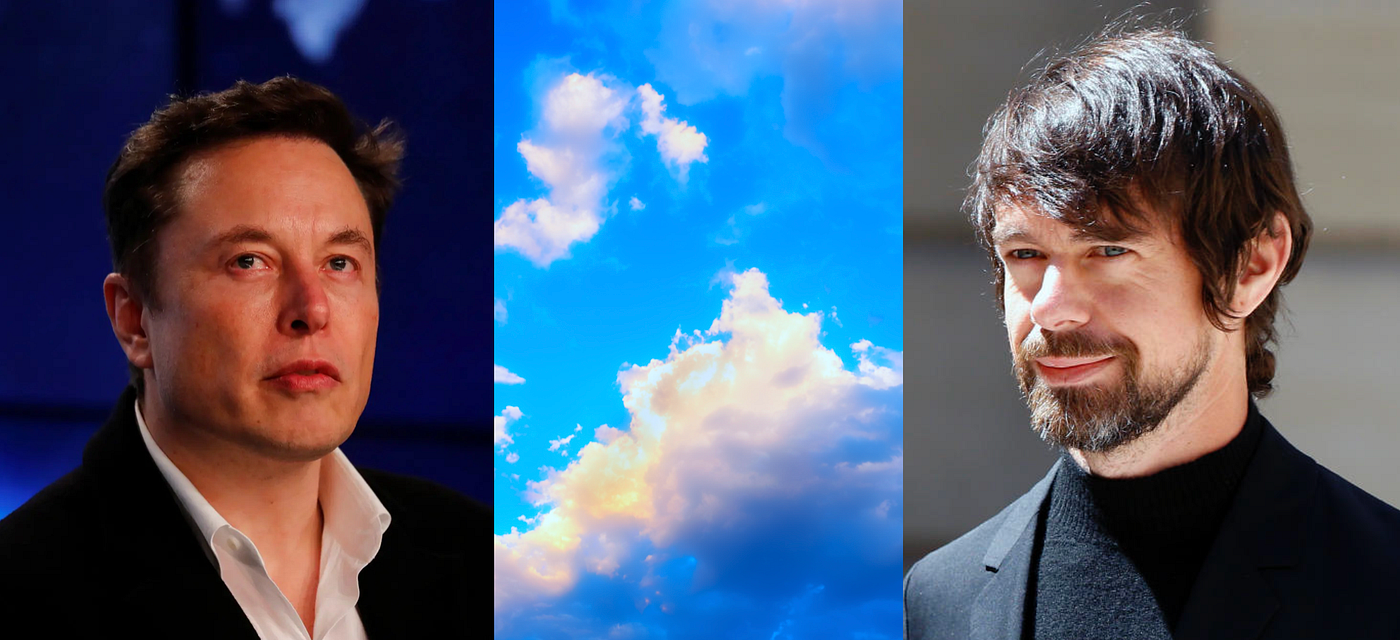
be able to run entire virtual worlds like actually put in a game like Minecraft um I think this isn't normally a gif but a PDF doesn't support GIF yet so I won't 00:18:41 be able to see the GIF but imagine being able to have an entire virtual world like Minecraft and all of the interactions of the players in that speed being able to be tracked with the 00:18:53 hard verifiability of um of consensus in a blockchain setting so like that's where we're headed
= run virtual worlds
- like MineCraft
- all the interactions of the player
- tracked with verifiability of consensus
- in a blockchain setting
- at speed
- massive scale computations
- all the shards of the world that players want to polay

I've been hoping to talk about this for a long time this is a really like a long-term bit of work for a lot of us um the um the consensus lab in general has been 00:00:16 um pioneering a ton of like amazing contributions to the ecosystem in terms of scaling in a bunch of different ways and this one I think is going to be one of the greatest contributions that this lab is going to make um to the whole blockchain space
long time comming
greatest contribution to the blockchain space
and beyond
= comment - seen this potential from the word GO - blockchain with its global consensus with Distributed Ledger needs Distributed Hash Tables to scale consensus and reach
it sounds like this breaks cap theorem
= break = CAP theorem
massive scale data science um all of this sort of coordinated and think of all the data pipelines um built with IPC
= massive scale data science - with InterPlanetary Concensus
.png)
you could do 00:12:48 traditional backends in a web 3 sort of sense um with optimistic or zero knowledge proof based verifiability which might be very secure verifiability to be a bit expensive but you you make it up in the scale out so by being able to Fan out 00:13:01 and have so many computers you can pay off a few orders of magnitude in running a traditional standard web app backend in the zero knowledge setting
= can do = traditional back ends in web 3 - optimistic or zero knowledge proof based verify-ability - could be bit expensive - but pay off a few orders of magnitude in scale out - run subnets - in running a traditional standard web app back end - zero knowledge setting
.png)
there's this consensus bottleneck where you're trying to push in tons of amounts of of transactions you everything is getting bottlenecks
= consensus bottleneck
permissionless 00:02:02 large-scale Byzantine fault tolerant networks that have an economic construction within them um it's a much stronger way of building um digital resistance and applications but we need to make them scale
why Bitcoin was an ethereum and so on were sort of like disregarded by the traditional Cloud people because it just kind of seemed crazy that you know a transactional system that could do only 00:01:49 a fraction of what your phone could do was going to run the entire monetary system
disregarded by the traditional cloud
transactional systems
web3 needs to become 00:01:23 web scale today
web3 needs to become web scale
.png)
it gives you Byzantine 00:00:43 fault tolerant tolerance in a very nice scalable setting and it has very nice properties for a lot of classic distributed systems applications and so you can think of doing cluster management and large-scale computational 00:00:57 arrangements
fault tolerance
in scaleable settings
nice properties for distributed systems
design distributed applications with tolerance for interplanetary delays
partition tolerane delays
.png)
let's talk about the interplanetary 00:06:31 principle it's something that the professor Community came up with and the idea is like um you know if you remember the end-to-end principle that says that
interplanetary principle
end to end principle professor Community came up
inside networks um you want to keep things dumb and stateless the endpoints have to do all 00:06:44 the work
keep things dumb in the network
end points should do all the work
if you were doing something simpler you could have a much simpler protocol if you were just kind 00:06:19 of like trying to do like um you know log machine replication or something like that or having eventually consistent structures and whatnot like if you want to be able to like have hard security um that's a much harder problem
log replication eventual consistent structures
.png)
Applications of IPC - Juan Benet
https://hypothes.is/a/ubXcLGcdEe2-L2sxC-YnPw

outside of a blockchain context because it gives you Byzantine 00:00:43 fault tolerant tolerance in a very nice scalable setting and it has very nice properties for a lot of classic distributed systems applications and so you can think of doing cluster management and large-scale computational 00:00:57 arrangements
outside of a block chain context

Offline-first applications (22Q2 brainstorming) #145
Offline-first applications
subnet coordinator actor
subnet coordinator actor
ConsensusLab explores fundamental problems of coordination, consistency, and scalability in decentralised systems
Daniel Henry Holmes Ingalls Jr.: The Live Web. Drag 'n drop in the cloud
https://hypothes.is/a/oxL0LmcXEe2oRS8XPvPYUg

the morphic graphics model that I'll be working with came also John McCarthy's half-page Lisp 00:01:02 eval is just the perfect example of meta-circular programming
= meta-circular programming

Sketchpad (a.k.a. Robot Draftsman) is a computer program written by Ivan Sutherland in 1963 in the course of his PhD thesis

The summum bonum is simply that numbers are ideas (mental constructs representing a perception, and in that sense, they do exist platonically). As has already been very well explained, these ideas are useful for describing the world around us, and so we continue to use and improve upon these ideas.
numbers just ideas?
“Software should be as easy to edit as a PowerPoint presentation,” Simonyi asserts. That means giving it just as intuitive an interface.
software simple
We're here at QCon London 2010 and I'm sitting here with Dan Ingalls. Dan, why don't you explain to us what you've been doing for the last 40 years?
Dan What have you been doing for the past 40 (by now 50)
years

Lively Kernel

next generation file sharing system
= next generation file sharing system
global, mounted, versioned filesystem and namespace
= file system & name space - global - mounted - versioned
IPFS is an ambitious vision of new decentralized Internetinfrastructure, upon which many different kinds of applica-tions can be built
= decent(ralized) Internet infrstructure
Permanent Web where links do not die
= Permanent web - where links do not die
a web CDN
= a web CDN
n integrity checked CDN for large files
= integrity checked CDN (without SSL)
inked (and encrypted) communications platform.
= linked & encrypted communications platform
database: applications
= database application = with - versioning - caching - distribution
ersioned package manager for all software
= versioned package manager for all software
encrypted file or data sharing system
= encrypted file/data sharing system
a mounted personal sync folder
= personal sync folder
mounted global filesystem,
= mounted global file system
Using IPFS
= section = 3.8 Using IPFS
Plan9 [?],the distributed successor to UNIX, with its mutable Fossi
= Plan 9 , Fossil https://hypothes.is/a/hZRguLToEeyKKo_pp-3p0A